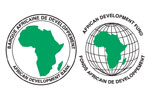AfDB approves Uganda Support to Higher Education, Science and Technology Project

In line with Uganda's National Development Plan for 2011-2015, the project aims to turn the country into a regionally competitive industrial economy by 2025 by developing skills and investing in science and technology.
Uganda has seen higher education student enrolment rise sharply in the last five years - a 13% increase from 2010 to 2011 alone. However, this has not been matched with skilled university professors, or the necessary infrastructure. Funding of facilities with ICT equipment has been low and has hampered student access to ICT. In addition, it is estimated that in order for Uganda to meet its goals to become an economic competitive player in the region, it needs to strengthen capacity in science, technology and innovation. Yet a mere 30% of students are enrolled in science and technology.
35,000 more Ugandan students able to enroll
Through the AfDB's support, 35,000 more Ugandan students will be able to enroll in science, technology and innovation programs on campus and a further 12,000 through virtual learning. The bank loan is financing six public universities and two degree-awarding institutions ensuring that ICT equipment and networks are available to the eight targeted institutions. This will enable Uganda to link up with other regional and international centres of excellence, and ensure that graduates are suited for the job market, locally and beyond.
The project was designed in line with the AfDB's long-term strategy and its human capital development atrategy, where human capital, inclusive growth and reducing youth unemployment are prioritised. It is an example of the New Model for Education in Africa (NEMA), being spearheaded by the AfDB, which supports a higher usage of ICT in education.






